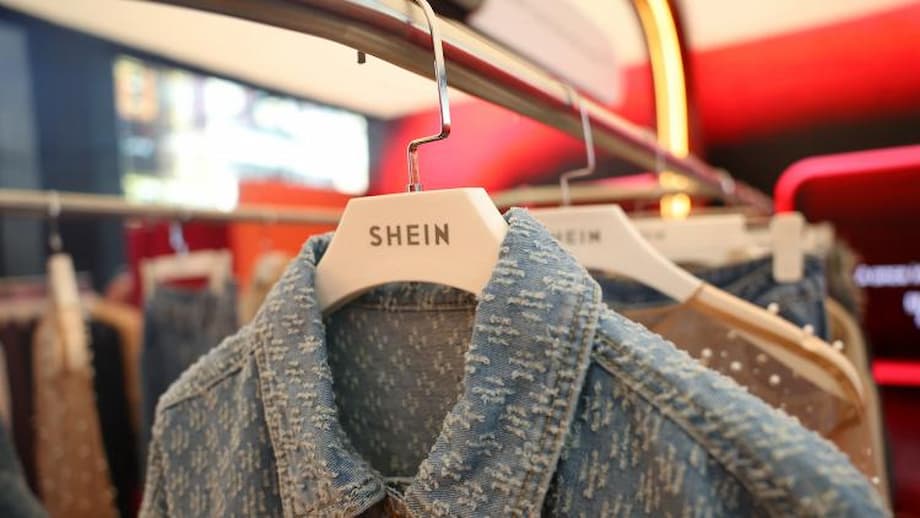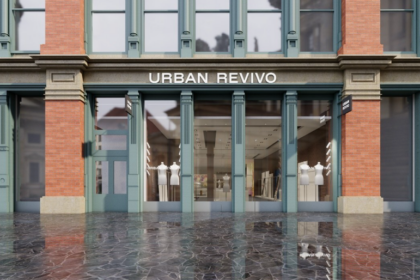A brick and mortar move in France
Shein, the ultra fast fashion giant best known for a sprawling online marketplace and rock bottom prices, will open six permanent stores in France starting 1 November. The first space, more than 1,000 square meters, will take over the sixth floor of the BHV Marais department store in central Paris. Five additional shops, each about 300 to 400 square meters, are slated to follow in Dijon, Reims, Grenoble, Angers and Limoges inside regional department stores branded as Galeries Lafayette. The rollout marks the first time Shein commits to a lasting physical presence anywhere in the world after years of pop up experiments.
- A brick and mortar move in France
- How a department store deal sparked a retail standoff
- What this means for shoppers and rivals
- Rules and fines frame Shein entry
- Workforce and planet concerns remain unresolved
- Unions and local politics mobilize
- Why open stores at all
- What comes next for the rollout
- Key Points
The timing is striking. Paris is hosting Fashion Week events, Shein is under sustained legal and political pressure in Europe, and the global debate over fast fashion has sharpened. Yet the company is pressing forward with a retail strategy that puts a permanent logo over the door, backed by a partnership with the landlord operator Société des Grands Magasins (SGM). SGM owns and operates the BHV Marais and a network of regional department stores that carry the Galeries Lafayette name under affiliation agreements.
In its pitch, Shein says the stores will help revive city centers, restore historic retail landmarks and bring new shoppers into these sites. The initiative is presented as a long term bet on the French market, which is one of the company’s largest in Europe. Shein reported 23 billion dollars in revenue in 2022 and employs about 16,000 people worldwide. The company’s marketing machine pushes thousands of new styles each day. It has also drawn scrutiny for environmental impact and labor standards across a vast supply chain.
Even before the first rack is wheeled into place, the backlash has been intense. The Galeries Lafayette group, which no longer operates the regional stores involved, publicly opposed the plan and said Shein’s practices do not align with its values. Trade bodies in fashion and retail have criticized the move. The French public investor Caisse des Dépôts, via its real estate arm, distanced itself from the SGM partnership. Labor unions at BHV have announced a walkout to protest the arrival of the low cost brand inside their building.
How a department store deal sparked a retail standoff
The new stores exist because of a property and operations deal. SGM, a private group that has been acquiring and reviving historic department stores across France, owns BHV Marais and controls several regional locations that bear the Galeries Lafayette banner under affiliation. SGM struck the agreement with Shein to allocate shop in shop footprints inside those buildings. The Galeries Lafayette group, which runs the famous flagship on Boulevard Haussmann in Paris but not the regional affiliates at issue, has challenged the decision in the court of public opinion.
In a public statement, the Galeries Lafayette group said Shein’s arrival is at odds with the premium positioning and responsible fashion platform it wants to build. The group went as far as saying it opposes installing the brand in the five affiliated regional stores. That position has fueled a rare standoff between a banner owner and an affiliate operator over which brands deserve space inside multi brand department stores. SGM, for its part, says the agreement respects its contracts and that it continues to discuss the matter with all stakeholders.
The national public investor Caisse des Dépôts also weighed in. It said it would not back the Shein partnership and that any investment it makes must be consistent with a responsible economy and ecological transition. The investor’s real estate arm ended talks with SGM on a potential deal for the BHV building, citing a loss of trust.
Frédéric Merlin, the president of SGM, has presented the project as a way to bring footfall back to historic sites and diversify the offer for a younger audience. Introducing his rationale, Merlin said the alliance is meant to serve local commerce, protect landmark stores and create jobs in France.
We want to bring life back to city centers, restore department stores and support ready to wear in France, while creating about 200 direct and indirect jobs.
Shein echoes that message, saying the stores will draw new customers who might not normally visit department stores and that French suppliers have approached it with partnership ideas since the company announced a separate tie up with Pimkie earlier this year. The company insists it is committed to compliance and to better practices in its supply chain.
What this means for shoppers and rivals
Shoppers will not find the entire Shein universe in these spaces. The Paris shop will be larger than any of the regional locations, but all six will rely on curated assortments that rotate rapidly. Expect frequent drops and a heavy use of digital engagement in store to mirror the speed of the app. Prices will look familiar, since Shein’s appeal rests on turning trends into low cost garments at short intervals. The draw for many customers is affordability and novelty. Those are powerful retail magnets, especially when family budgets are tight.
For department stores, the bet is that a mass audience brand can inject energy and traffic. For local labels and independent shops, the fear is that a deep discount player inside a heritage building will siphon sales and reset price expectations across town. French trade associations have warned that ultra fast fashion pulls the market downward and undermines efforts to build more durable fashion habits. The presence of Shein could force rivals to accelerate promotions or to focus on quality and service to defend their ground.
Rules and fines frame Shein entry
France is in the middle of a policy shift that targets the environmental and social costs of ultra fast fashion. Lawmakers advanced new measures in 2024 and, according to officials, adopted an anti fast fashion law in mid 2025. Regulators have also pursued Shein for consumer protection breaches. International bodies have criticized the company’s conduct on labor and environment. The legal and policy backdrop will shape how Shein operates its first permanent stores.
What the new French law targets
The anti fast fashion law aims to curb the volume and waste generated by very high speed apparel cycles. It introduces financial penalties that grow with the environmental footprint of products, and it restricts or bans advertising for the worst offenders. It also increases transparency requirements for sourcing and waste management. The European Union has separately moved to end the low value customs exemption that lets thousands of small parcels enter the bloc without duties. That change, when it takes effect, would raise the cost of shipping many orders directly to consumers and could push platforms to hold inventory locally.
Fines already paid in France
In July 2025, the competition and consumer authority issued a 40 million euro fine against Shein for deceptive promotions linked to price reductions shown to shoppers. French privacy regulators followed with a penalty of 150 million euros for violations of national rules on cookies and tracking consent. Those cases illustrate two separate risks for global platforms. Consumer law governs how prices and discounts are displayed. Privacy law controls how user data is collected and used. Operating physical shops will not lift those obligations. If anything, it may broaden the scope of compliance to in store data and loyalty programs.
International scrutiny and OECD guidance
Beyond France, an OECD body concluded that Shein falls short of its guidelines for responsible business conduct on social rights and environmental goals. Activists in Europe and the United States continue to press the company on forced labor risks in cotton sourcing, especially in China’s Xinjiang region. Shein says it prohibits forced labor and audits suppliers. It has declined to answer specific questions about cotton origin in some proceedings, according to lawyers noted in public reports. Those questions will not fade as the brand puts its name on permanent storefronts.
Workforce and planet concerns remain unresolved
Nonprofits and labor monitors have accused Shein suppliers of keeping grueling schedules and paying very low wages. A joint report from ActionAid France and China Labor Watch described shifts that exceed twelve hours a day, sometimes seven days a week, with precarious contracts and little protection. Earlier investigations by Public Eye highlighted poor safety conditions in workshops. Shein disputes the most severe characterizations and points to programs aimed at improving oversight, but skepticism persists among unions, activists and many competitors.
Environmental groups say the company’s business model relies on extreme overproduction and social media fueled micro trends that encourage constant purchasing. Processing and shipping a flood of small parcels creates a large packaging and logistics footprint. At the end of the cycle, garments that wear out quickly or go out of style fast are more likely to be discarded. Advocates for sustainable fashion argue that this pattern is incompatible with climate and waste reduction goals, and they have framed Shein as the clearest symbol of that tension.
Industry organizations have taken their own stand. Several French federations in apparel and retail have called the plan to welcome Shein inside prestigious department stores a reversal of the sector’s stated ambitions on quality and responsibility. One federation representing independent clothing retailers captured the mood in a blunt message.
This choice drags the entire market downward, damages local brands and weakens jobs across the value chain.
The tug of war between price accessibility and ethical standards runs through every layer of this story. The stores will open in cities where consumers care about affordability. The same cities host designers, manufacturers and craftspeople who hope to sell more durable fashion at fair margins. How that tension plays out will be watched closely by mayors, unions and small business owners.
Unions and local politics mobilize
Labor groups at the BHV Marais have organized a walkout to protest the Shein shop planned for the sixth floor. The inter union coalition spanning CFDT, CFTC, CFE CGC, CGT and SUD Solidaires called for a three hour stoppage to denounce the installation of the ultra fast fashion brand. Union leaders say the BHV has already shed more than 300 jobs since SGM took control in 2023, and they argue the new partnership confirms a shift toward a model that erodes skilled retail work.
Union representatives also say the promise to create roughly 35 roles linked to the new space is not credible when set against the workforce reductions that have already taken place. They point to late payments to some concessions and the departure of French labels that do not want to share floorspace with Shein. One line from the inter union note summed up their critique:
A destructive economic model is taking hold, one that disregards French know how and the value of retail jobs.
City officials have voiced concerns too. The deputy mayor for commerce in Paris urged SGM to reconsider the partnership and said that tying the BHV image to ultra fast fashion condones a model built on social exploitation, opaque supply chains and heavy textile pollution. SGM says it has support within city leadership and that it wants to use the sites to test more responsible versions of the Shein model. National trade groups have asked consumer protection authorities to intensify inspections and levy penalties where violations are found.
Public reactions in regional cities have already shown the divide. Previous Shein pop ups drew long lines, even as activists spray painted slogans about labor abuse and pollution on shopfronts that cleaning crews removed before doors opened. Many shoppers who queued said they knew quality could be uneven, yet low prices fit their budget. Those contradictions will be front and center once the permanent racks are filled.
Why open stores at all
Shein’s competitive edge has been speed and price, delivered through an app and a global network of suppliers. A permanent footprint adds different advantages. Physical stores act as a billboard and an experience center. Customers can try on sizes, feel fabrics and return items without postage. That lowers friction and can reduce last mile shipping costs. Stores can also build trust, which matters when a brand faces criticism on quality or ethics. For a platform built on ultra rapid product cycles, stores create a stage for curated drops and social content filmed on site.
There are costs and risks. Operating permanent spaces adds rent, staffing, fixtures and inventory management. It requires tighter demand forecasting to avoid piles of unsold goods. Any issues with product safety or labeling are easier for regulators to spot on a shelf than in a parcel. Changes to customs rules will increase the cost of shipping small orders into the European Union. Many global marketplaces respond by shifting goods into regional warehouses. That reduces shipping times but increases compliance obligations, from product testing to tax collection.
For department stores, the draw is simple. Legacy retail buildings need traffic, especially after years of pressure from pure online sellers. A mass brand with viral reach can lift visits. The risk is brand dilution and alienation of labels that do not want to sit next to an ultra low price neighbor. The early exits by some French brands from BHV, cited by unions, show how delicate the balancing act can be.
What comes next for the rollout
Barring last minute changes, the BHV Marais space will welcome customers on 1 November, with the five regional shops opening in sequence through early December. The Paris floor will be the flagship of the experiment, with the smaller regional spaces serving as test labs for assortment and merchandising. SGM says conversations continue with stakeholders who oppose the plan. The Galeries Lafayette group’s stance has not softened in public, though the regional affiliates remain under SGM’s control.
Regulators and advocacy groups will monitor the launch closely. Consumer protection authorities have already fined the company over deceptive price displays, and privacy regulators issued a record cookies penalty. New policies on fast fashion, once fully enforced, will affect marketing and cost structures. International watchdogs will continue to assess supply chain risks. Unions plan to keep pressure on BHV management and to document any impact on employment and working conditions inside the building.
Shein wanted a global showcase for a new phase of its strategy, and it chose France. The country brings heritage department stores, engaged civil society and a tightening rulebook. Store openings, customer queues and social media buzz will be the easy part. The harder work will be proving that a company built for instant trend turnover can operate inside landmark buildings while moving closer to the standards French consumers and regulators now expect.
Key Points
- Shein will open six permanent stores in France from 1 November, starting at BHV Marais in Paris and followed by five regional sites inside Galeries Lafayette affiliates.
- The Paris shop is over 1,000 square meters on the sixth floor of BHV Marais. Regional stores are between 300 and 400 square meters.
- The deal relies on a partnership with Société des Grands Magasins, which owns BHV and operates regional department stores under affiliation.
- The Galeries Lafayette group opposes hosting Shein in the five affiliated regional stores, saying the brand’s practices clash with its values.
- Caisse des Dépôts said it would not support the partnership and ended talks with SGM over the BHV building, citing a loss of trust.
- French regulators fined Shein 40 million euros for deceptive discounts and 150 million euros for cookie law violations in 2025.
- France adopted an anti fast fashion law that adds environmental fees and restricts advertising for high impact players.
- OECD bodies have found Shein falls short of guidelines on social rights and environmental goals. Labor and environmental groups remain critical.
- Unions at BHV called a strike against the Shein shop and say earlier job cuts undermine assurances about new roles.
- Physical stores give Shein visibility and lower return friction, but they also bring new costs, more scrutiny and tighter compliance duties.












